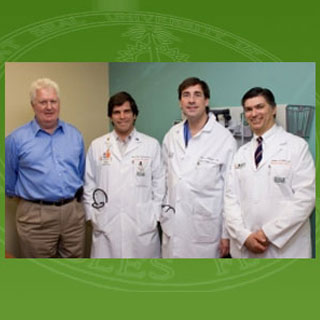
Patients with enlarged hearts probably suffer premature death, have major disability, and experience frequent hospitalizations. Along with limited treatment option, these patients are possibly subjected to lifelong medications and major medical interventions, including heart transplantation. During the study, scientists employed a corkscrew-shaped catheter to inject stem cells retrieved from the patient’s own bone marrow. This test was undertaken on eight men who were in an average age group of 57 years. All the participants were diagnosed with chronically enlarged, low-functioning hearts.
In initial stages of the injections, improvement within the damaged area of the heart was registered. This eventually may have reduced the size of the heart. These effects supposedly lasted for a full year after the injections and throughout the study. Joshua M. Hare, the study’s senior author and director of the Interdisciplinary Stem Cell Institute and colleagues found that the heart size decreased an average of 15 to 20 percent, or about three times of what is possible with current medical therapies.
While scar tissue diminished by an average of 18.3 percent, a considerable improvement in the function of specific damaged heart areas appeared. Stem cell therapy possibly improved old cardiac injuries as well. Two different types of bone marrow stem cells, mononuclear or mesenchymal stem cells were used to determine which one is better than the other. All patients in the study reportedly benefited from the therapy with no major side effects.
The effectiveness of stem cell injections was examined by measuring contractility, scar size and structural changes of the heart. It was suggested that this therapy can boost the quality of life among patients with enlarged hearts.
The study is published in the March 17 issue of Circulation Research: Journal of the American Heart Association.
